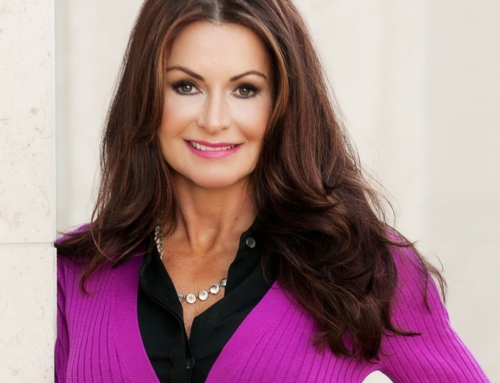Yvonne Perez Emerson is a wild spirited, Latinx woman with over 30 years in design and strategy, and the pioneering founder of Make & Mary, a luxury CBD beauty and experiential brand that explores the world of cannabis through art, design, self-care and its roots in folk medicine and heritage craft making. Perez is an award-winning creative director, story teller, dreamer, and maker. In 2016, as a creative powerhouse in Portland, Oregon, Perez used her background in design and community building to launch Make & Mary as a cannabis-friendly workshop series where attendees gain hands-on experiences in heritage craft practices combined with the highly inspiring spiritual and creative benefits of cannabis. Perez began formulating herbal folk remedies over 20 years ago and brought these arts to the forefront of the modern cannabis space. In 2018, Perez expanded Make & Mary into a luxury CBD beauty brand. Her robust product line features clean organic skincare solutions and lifestyle products made with full spectrum CBD, cannabis aromatherapy, and herbal adaptogens. Make & Mary was also selected as one of eight featured brands in the first cohort of The Initiative, an accelerator program designed to support and fund women founders in the cannabis business.
Prior to Make & Mary, Perez founded two arts nonprofits, La Mesa Arts Alliance and WeMake. The La Mesa Arts Alliance was founded in 2004 with the city of La Mesa, California, Parks & Recreation department to provide a variety of arts experiences to the local community. WeMake, a 501C non-profit, was founded in 2012 developed to foster art and design in Portland’s creative community through hands-on experiences, dialogue, and design in action initiatives. WeMake helped raised over $165,000 for arts and education in Portland, and through its various exhibits, art shows, talks, and 4 conferences, featured 4000+ makers over 10 years. WeMake conferences were held at the Portland Art Museum and The Armory and in 2018 were recognized by the American Institute of Graphic Arts (AIGA) as the most gender equitable conference in all of the UK and US.
In 2019, Perez transitioned her work with WeMake into Make & Mary to fully focus on growing the company. Perez is also the owner and founder of Portland’s Tillamook Station, a reclaimed warehouse nestled within the old Triangle Milling building which housed many of WeMake’s workshops, and currently plays home to creative professionals, Make & Mary’s workshops, and Perez’s award-winning design studio The Study she founded in 2006 and runs to this day. The Study has been awarded the Rosey Award of Excellence by the Portland Advertising Federation for its work on its “WeMake Celebrates” campaign, along with Print Magazine’s Regional Design Award “Best of Region,” and HOW Magazine Design Award for best self-promotion. Perez also served as an adjunct design professor at Portland State University for 6 years (2010-2016).
Thank you so much for doing this with us! Can you tell us the “backstory” about what brought you to the cannabis industry?
As long as I can remember, Cannabis has been a part of my life, it was a part of our family growing up. However, in 2016 when recreational use became legal in Oregon, I decided I wanted to use my background in the maker industry to showcase cannabis through art and design. I began holding infused workshops in my creative studio with a focus on heritage craft making and self-care. We invited farmers to share their story and journey…farmers are makers after all and this correlation seemed natural.
I could see that the cannabis world was opening up and I also knew that everyday people smoked weed. For me, plant medicine and creativity go hand in hand and I wanted to be a part of telling that story. At the time, I began using CBD oil for my chronic back pain. So, I decided to formulate products that addressed my concerns about aging and the effects it had on my skin and body.
I had been making herbal remedies for myself and family for over 20 years. When I was a young mother, I wanted to be the healer of my family, I think that comes from having healers in my extended family. My mother was a nurse and so was her mother. My father’s mother, my abuela, was the mama of 10 children and used plant medicine often.
Can you share the most interesting story that happened to you since you began leading your company? Can you tell us what lesson you learned from that?
I think what’s been interesting is the reaction I have had from folks coming to our workshops and events. Our events are featured in hospitality programs within the city and people come from all around the world to attend them. They are inclusive to everyone over 21 years old. It’s been really cool to have attendees bring their parents, their spouses or just come alone. We don’t really focus on cannabis so much, it’s more about self-care through a holistic approach. We have a lot of people who attend that don’t consume at all, and that’s sweet. It gives them an opportunity to see this community in a natural and normal setting, without judgement.
What lessons have I learned from this? That it’s true, you can’t judge a book by it’s cover and that it takes courage to come out of the closet, but people are accepting if you give them the space to be so.
Can you share a story about the funniest mistake you made when you were first starting? Can you tell us what lesson you learned from that?
Oh my gosh. I was in such a hurry to launch this brand the first time around. I made all these fun illustrations and they were all so colorful — it was a mess, and I am a designer! So I brought it down a notch and made the artwork all one color, and re-ordered labels. Still, the brand was not speaking to me — that’s because I didn’t take the time with developing it as I would any other client job. I was assuming that it should look a certain way — it was very safe.
When I finally stepped back and really thought about it, things became more clear. I am a bit of a risk taker in life and wasn’t doing that with the look and feel of the brand. I didn’t want it to look like weed and thought that the yoga pant wearing mom was who I should be talking to, but I do yoga stoned and ride a motorcycle, that’s not normal.
So, I literally stopped the presses (we had packaging being printed with the safe look) and decided to refresh the brand with my muses in mind. I wanted it to be beautiful, feminine and rebellious. And now, it is.
The lesson I learned? Be yourself and do it unapologetically. And do the work up front, because it costs a lot of money to reprint things! But, most importantly, the products that you actually formulate and make should be a reflection of who you are. As a founder, it’s so much easier to talk about the brand when you believe in everything about it—from the values to the look. Never compromise yourself along the way.
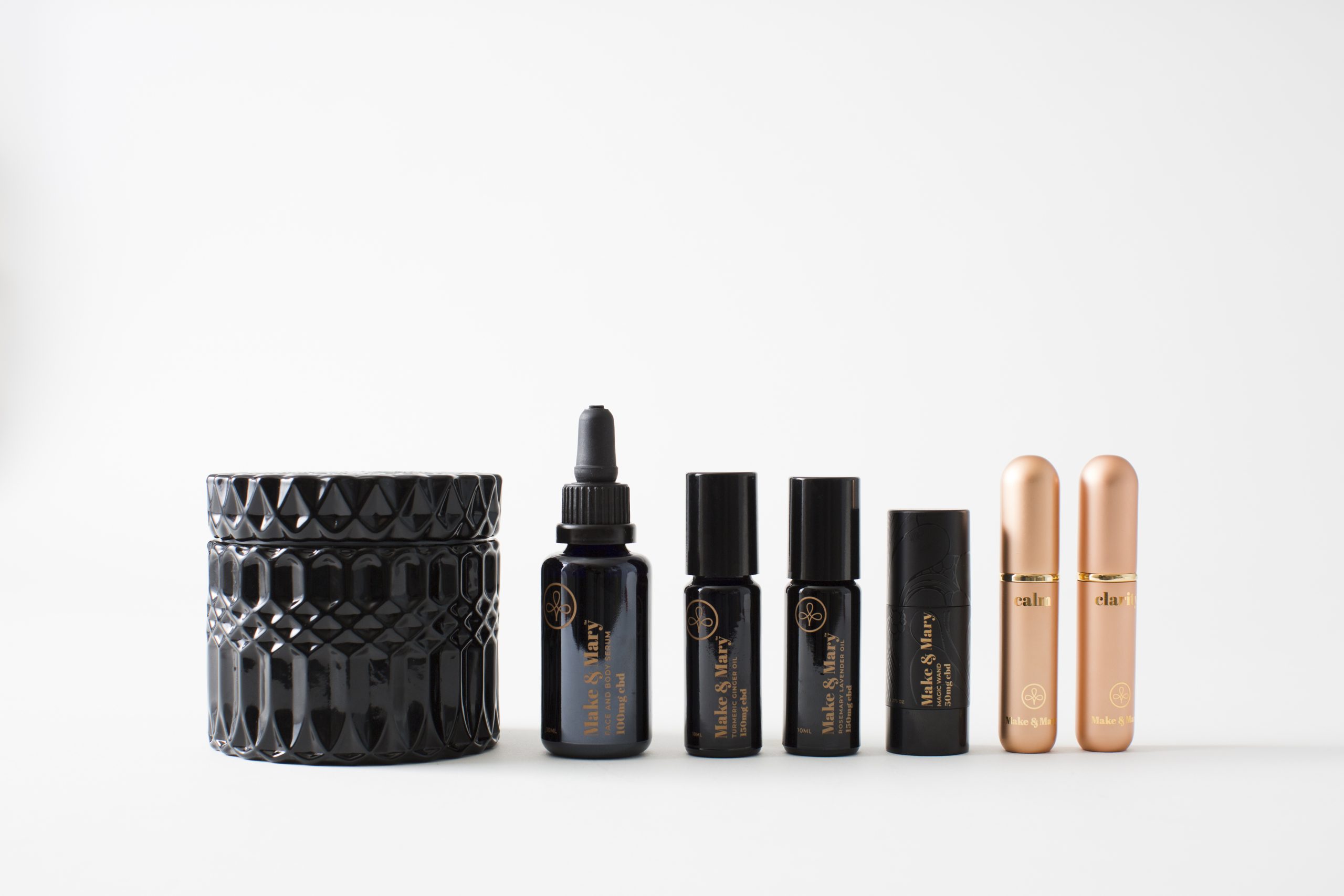 Do you have a funny story about how someone you knew reacted when they first heard you were getting into the cannabis industry?
Do you have a funny story about how someone you knew reacted when they first heard you were getting into the cannabis industry?
My husband smokes weed almost everyday and he’s a school teacher. Shhhhh….
There were times in my life that I didn’t consume, so he was the stoner of the house. Now things have flipped. I know way more about cannabis than he does, and I smoke about everyday. He was stoked and surprised when I decided to get into the industry. I am teaching him now.
See, even teachers can learn.
Also, I was very active in the design community worldwide. I was the founder of a non-profit design organization called WeMake here in Portland. We featured over 4,000 makers, put out two digital magazines and held four design conferences. We also raised over $165,000 for arts education. When I started Make & Mary, people were surprised to learn that I had a relationship with weed. But, I basically took the platform I created with WeMake and added weed to it! Now, I am getting invited to speak about cannabis and its relationship to design. In April 2020, I will be speaking at The AIGA Y Conference in San Diego. That’s a huge honor and platform to share this story.
None of us are able to achieve success without some help along the way. Is there a particular person who you are grateful towards who helped get you to where you are? Can you share a story?
My guy. He always believes in me. When I decided to get into this business, he was behind me 100%. I have a successful graphic design studio and being in the cannabis industry is my next venture. I hope to eventually do this full time. I have put everything I have into making this dream a reality and it’s nice to have my own personal cheerleader. He reminds me that I have always made shit happen, why would this be any different.
Are you working on any new or exciting projects now? How do you think that will help people?
Yes. We are going to be active this year by giving back. I want to use my experience in philanthropy and design work to help folks who are still incarcerated for cannabis charges. There are a lot of brown folks in jail for charges in legal states. That’s not cool. I have raised a lot of money for arts education in Portland, I’d like to use that energy to do the same for this cause. We have art shows and events planned to do so in the new year.
Ok. Thank you for all that. Let’s now jump to the main core of our interview. Despite great progress that has been made we still have a lot more work to do to achieve gender parity in this industry. According to this report in Entrepreneur, less than 25 percent of cannabis businesses are run by women. In your opinion or experience, what 3 things can be done by a)individuals b)companies and/or c) society to support greater gender parity moving forward?
As individuals, it’s important to use our voices to be heard. Women have a tendency to be quiet…maybe we think it’s because that’s the polite thing to do. But, that’s not helping our cause for equality. We need to voice our concerns in the workplace and let folks know that we are capable. It’s not bragging to share your accomplishments on places like Linkedin and other social platforms. I see it as telling the universe you are a bad-ass, and what we put out is what we get back, as long as it’s good and from the heart and your not being an ass, then you can’t go wrong.
For companies, we need to take a proactive role in hiring diverse teams. I would ask HR departments to look around and see who actually makes up their workforce. Companies need to seek POC and women where they are, they need to go to the people and search there. They also need to put minorities in leadership roles — this diversifies the culture, and successful workplaces have a strong culture.
For society, I think it starts early. We need to raise our daughters and our sons to be good people, to respect individuality, and to see each other as equals when it comes to our capabilities. If men were raised with this and daughters believed they could do anything and be anyone from a young age, it would be normal. Maybe women would be seen more for who they are than how they look.
You are a “Cannabis Insider”. If you had to advise someone about 5 non intuitive things one should know to succeed in the cannabis industry, what would you say? Can you please give a story or an example for each.
- Know as much as you can about the plant. If you are making a CBD or Cannabis product, know enough about your product to educate consumers. Don’t be lazy and find out about things just from the internet. Visit a farm, talk to the farmers, talk to people who consume, ask a lot of questions. When I got into this business, I went straight to the source to understand the process of extraction, how it was grown, the benefits of full-spectrum and sun-grown versus other methods. I was able to make informed decisions on the route I took. I think this pays off and your customers will appreciate it.
- Don’t assume that your customers are who they think they are. Performing user testing groups, polls, and asking them questions provides quality insight. We were surprised to see who our most active base was. It wasn’t until we did an online survey of our newsletter were we able to better connect the dots.
- Talk about other things than just cannabis or CBD. As I stated before, cannabis isn’t for everyone and finding things that people relate to besides cannabis or CBD can help share your story. At Make & Mary, we are highly inspired and use creativity as an inspiration to connect with our audience. We have a lot of positive feedback and interaction when we share bios of artists and projects not related to cannabis on our Instagram feed. We don’t just credit a photo, we share who these people are and why we love their work.
- Just do you. Don’t try to be anything you are not. People want to connect with the founders and sometimes you have to get in front and talk to the people! I was always used to being behind the scenes in the non-profits I ran and even with the design work I do for others. When you have a product that touches so many people, you have to be the face of your brand. That means getting on IG Stories and saying hello, or better yet IG TV. It was and is really awkward for me, but I’m doing it…if I could only perfect the selfie!
- Buy in bulk. When we first started we bought small. It’s so much better to go beyond your comfort zone and buy in bulk. Our COG’s went down considerably when we started buying big quantities. If you can do that from the beginning, you are winning.
Can you share 3 things that most excite you about the cannabis industry?
It’s becoming normal!
More women are participating in this industry from the get go and that’s awesome
You can get high in public.
Can you share 3 things that most concern you about the industry? If you had the ability to implement 3 ways to reform or improve the industry, what would you suggest?
We need more POC in this business.
We need to support POC farmers and businesses.
The cost of running a cannabis and CBD business is so expensive and makes it difficult to succeed if you don’t have a lot of money, it’s always going to be a struggle. I would love to see more equity in policy making, so that there is room at the table for POC and women-run businesses.
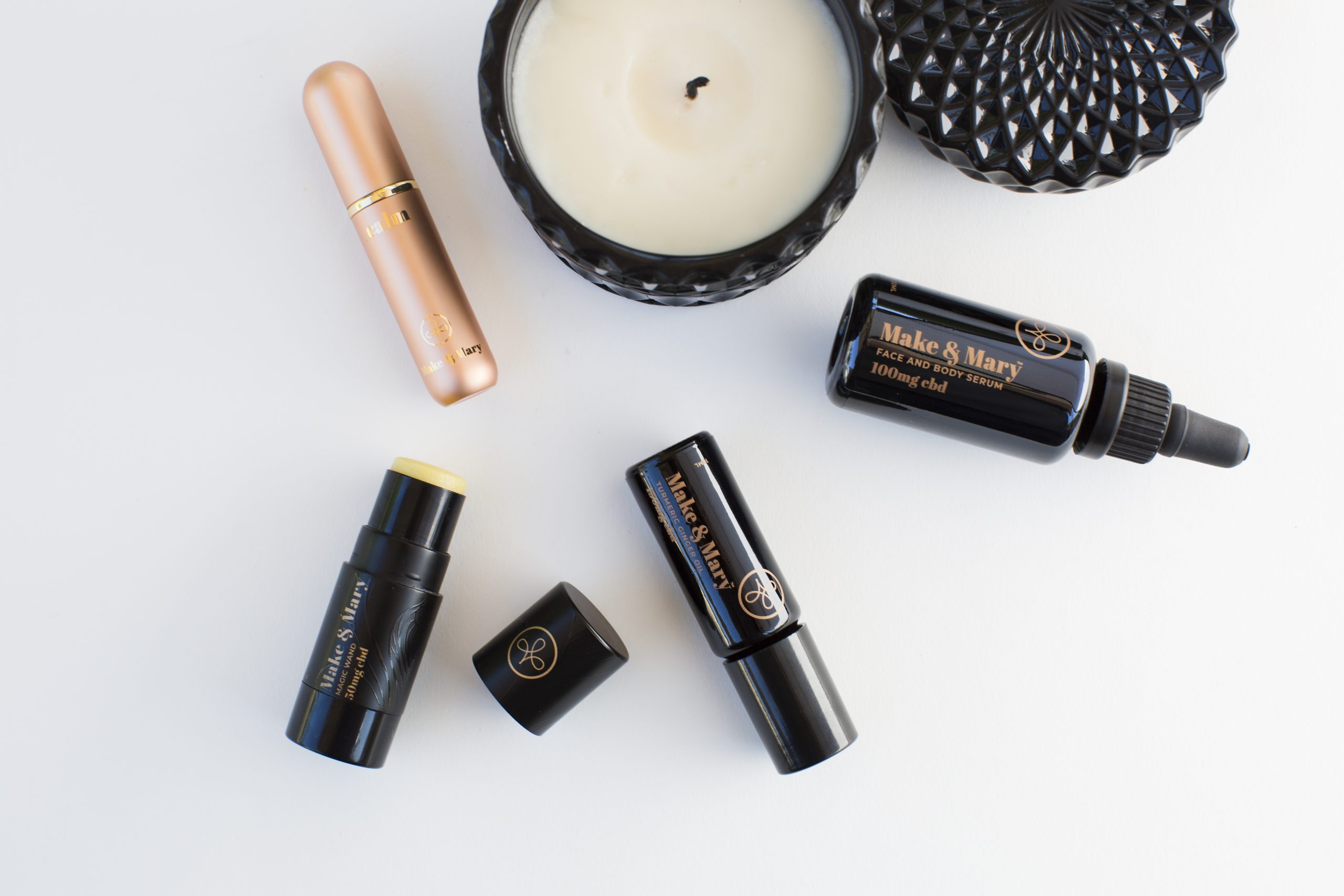 What are your thoughts about federal legalization of cannabis? If you could speak to your Senator, what would be your most persuasive argument regarding why they should or should not pursue federal legalization?
What are your thoughts about federal legalization of cannabis? If you could speak to your Senator, what would be your most persuasive argument regarding why they should or should not pursue federal legalization?
It’s going to be legal in all fifty states before we know it.
People’s lives are being changed for the better.
We can’t ignore the commodity and the value that cannabis and hemp offer. This is a viable industry for people to make a living and provide jobs.
Also, we could learn to lighten up as a society and cannabis chills us out.
Today, cigarettes are legal, but they are heavily regulated, highly taxed, and they are somewhat socially marginalized. Would you like cannabis to have a similar status to cigarettes or different? Can you explain?
I believe we do need to regulate the industry. There are a lot of people making snake oil and providing products that are not organic, or even worse, with mold. That’s just a few of the issues. If there was a checklist consumers could rely on, that would be good. We want products to be safe and we don’t need to be marketing cannabis to kids.
Can you please give us your favorite “Life Lesson Quote”? Can you share how that was relevant to you in your life?
“You gotta get up to get down.” —James Brown
I love this quote because it says nothing is going to happen if you don’t make it so. You gotta get up and participate and take the leap and then you can get down and enjoy the fruits of your labor.
You are a person of great influence. If you could inspire a movement that would bring the most amount of good for the greatest amount of people, what would that be? You never know what your idea can trigger. 🙂
I firmly believe in giving back and that it takes a village to raise awareness. If I could inspire a movement to think this way, I would do it through storytelling and creative endeavours. Art is not prejudice, it moves people, it questions, it inspires. I feel like more people need to have inspiration in their lives and even if they are not creative, even if they just experience it from afar, they benefit from it. Scientists say that when we open up the creative side of our brains, we are more likely to be happy, relaxed, and more confident. This is a bold idea and part of our ethos. This is what we are referring to when we say: Welcome to the Experience.

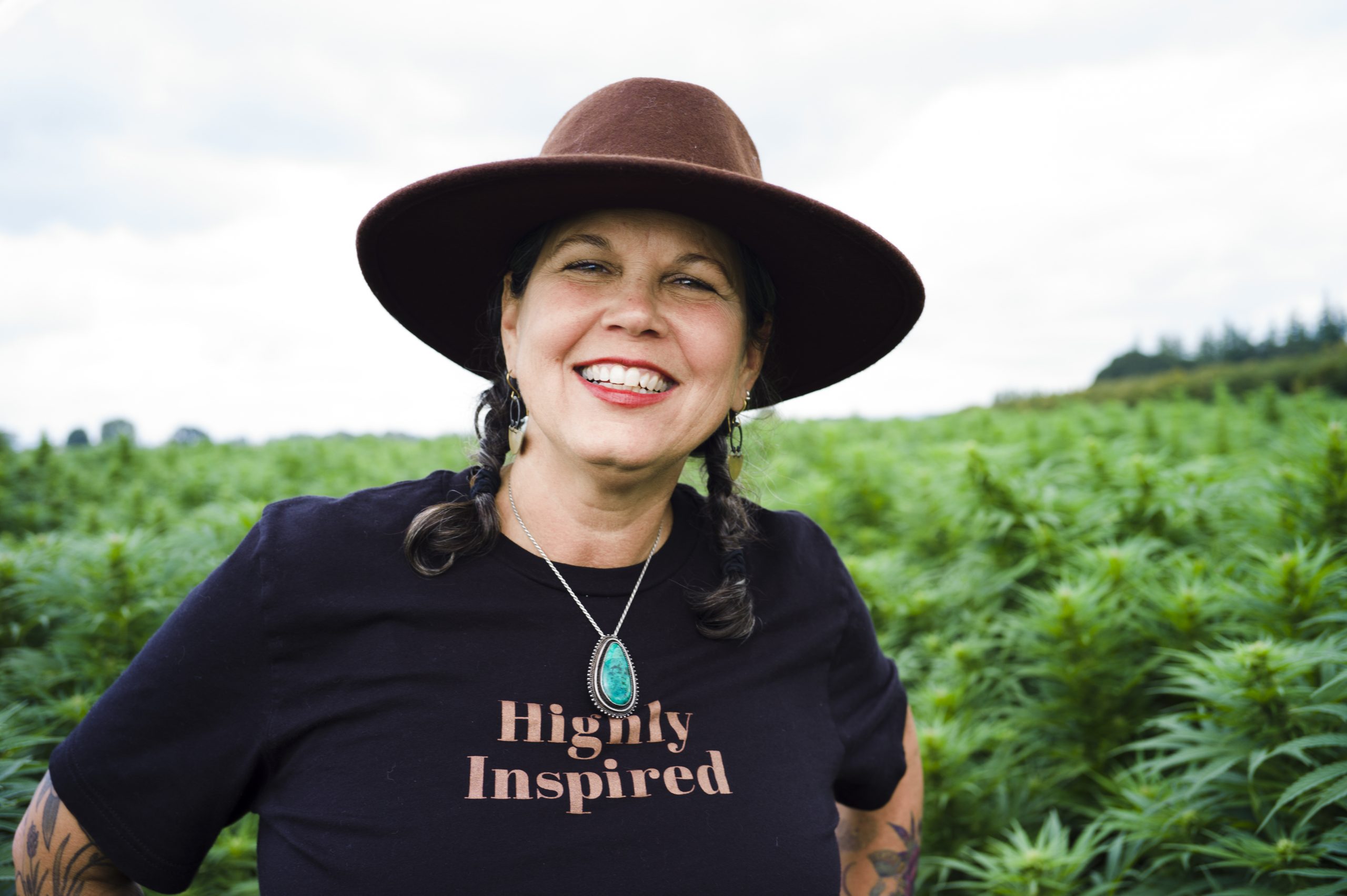
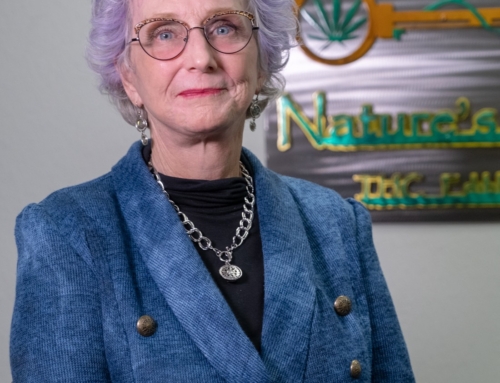
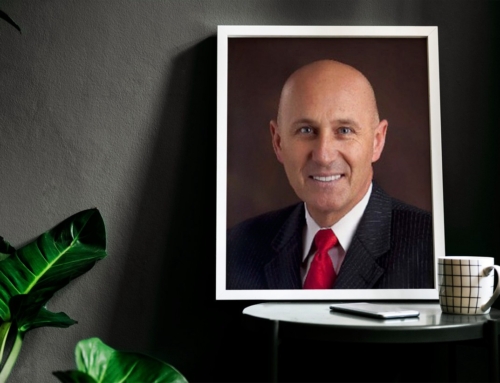
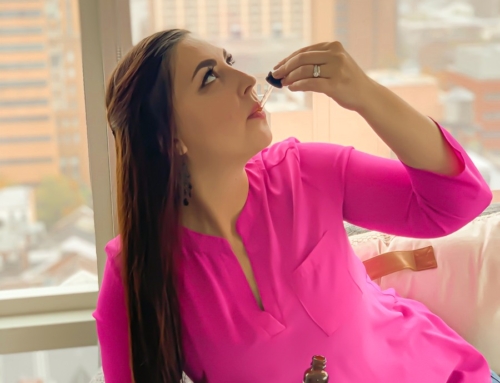
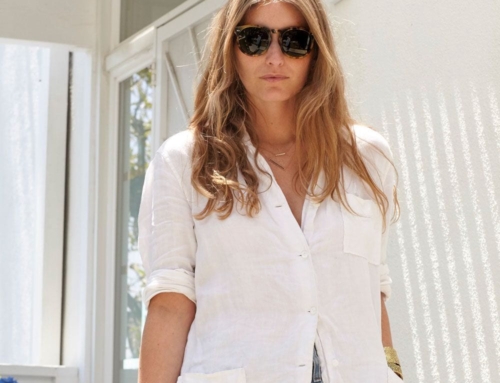
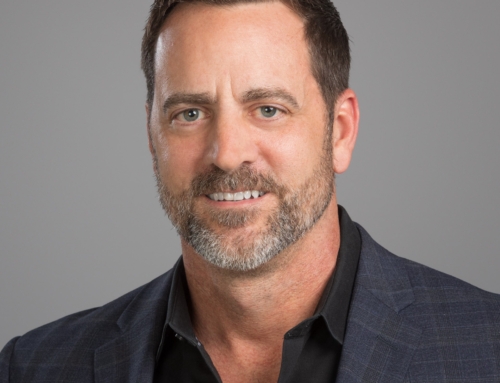
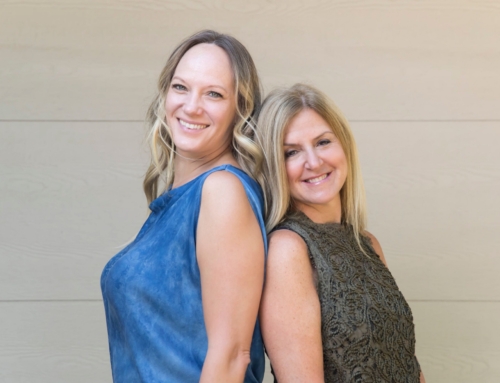
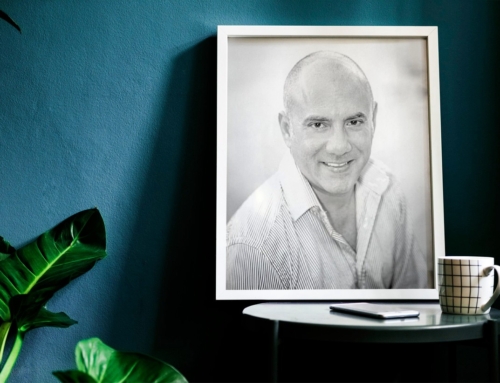
![“The potential to help people [in this industry] is enormous, but there’s still so much to learn.” – Ramon Alarcon, Witi](https://lakesideremedy.com/wp-content/uploads/2020/12/1thj5ekUyxQ69iLz1JJyODg-scaled-e1607882756286-500x383.jpeg)
